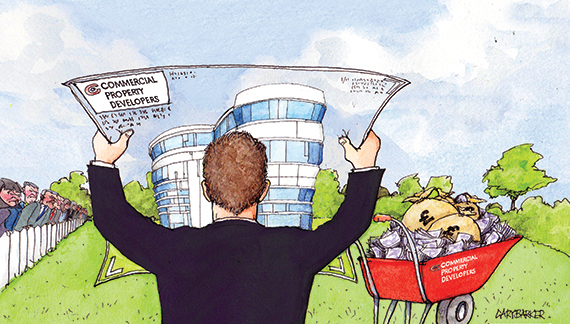As MPs continue to take part in the devolution debate across the UK following Scotland’s referendum, now is the time to consider what has been achieved on the government’s quest for localism.
With the main parties quietly making noises that they will not introduce further primary legislation to the planning system, the localism embedded in our current regime now looks to be relatively permanent. With the Lyons Review calling for measures to ensure local government plays a more active role in ensuring more homes are built, it looks as if localism is here to stay. More recently, the City Growth Commission called for greater self-determination for the UK’s largest cities. But how successful have efforts to decentralise decision making been and how could they be improved?
The relationship between the National Planning Policy Framework and the Localism Act of 2011 has been a testing one. The NPPF, with its presumption in favour of sustainable development, supports the pro-growth agenda and retains a steady focus away from centralised guidance onto local plans. When its agenda collides with the Localism Act, it is forced to pull rank in the high court.
Although the NPPF provides a clear structure by which applications should be considered, few local authorities have a clear, up-to-date local plan with a strategic approach to planning and infrastructure. DCLG figures show only 57% of local planning authorities have an adopted plan and one in five councils has not published a plan. Local authorities have had more than two years to draft and adopt such plans, but without a deadline or penalty, there is little to stop the system reverting to an expensive process of planning by appeal. Redoubling the focus to achieve this must be a priority.
Localism needs to be embraced by all sides. The creation and adoption by councils of more local plans would help bring certainty to the planning and development process. In places the problem seems to be conflicts between small neighbouring councils, resulting in cross-border nimbyism. Authorities need to work together in a holistic, county-wide effort, as achieved in the larger cities and remits.
Now that we are operating to a localism agenda there will be winners and losers. My hope is that investors in UK property will look for momentum shown by exemplar localities and cities. Councils that adopt enlightened strategic approaches and encourage productive public-private partnerships will attract most of the capital.
The goal is to ensure growth potential at a local level is delivered in the context of a need for the UK economy to grow. It is important that the localism and growth agendas work together. Efforts are being made within DCLG to make sense of the government schemes devised to promote growth at a local level.
The BPF will launch a report this month into the effectiveness of government growth initiatives. Elected councils need to be properly empowered if they are to deliver the growth these tools are meant to generate. Meanwhile, Scotland will have to wait as radical devolution is effectively on hold until June, when we will see which of the three party leaders has to deliver on their promise.
Bill Hughes is president of the British Property Federation and managing director of Legal & General Property












